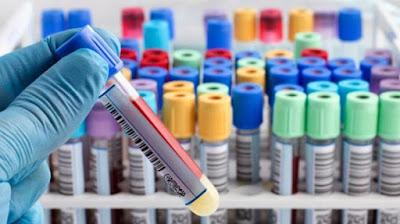Filenews 25 July 2021
When in December 2019 an alarm was raised about the unknown (then) virus, the scientific community took a combat position. Since then, while hospital doctors are fighting in the research field, an equally important war has raged. On the vaccine front, victories are important – with research, however, continuing as long as the riddles of duration of immunity and third dose remain unsolved. On the front of the treatments, on the other hand, the efforts are reminiscent of wandering in... labyrinth, as experts seek the exit from the pandemic. But scientists are not tackling the weapons, insisting that finding an effective drug will be a "game changer" in the treatment of SARS-CoC-2.
Earlier this week hopes were raised when the European Medicines Agency announced that it was starting to evaluate an old and therefore tested immunosuppressive formulation with the active substance arakira in patients who have developed pneumonia and are at risk of severe respiratory failure. In fact, in a statement, the Agency stresses that it is 'believed that it could also help reduce inflammation and tissue damage associated with Covid-19'.
At the same time, scientists from Israel, looking for a solution to the pharmaceutical arsenal, find that three existing drugs seem to have good prospects for the treatment of pandemic disease. This is Darapridib, used to treat atherosclerosis, Flumatinib, used to treat certain blood cancers and an HIV medicine. Indeed, Professor Isaia Arkin of the University of Hebron says he is optimistic for another reason: The active substances under study are not aimed at the protein spike – which could be described as the "core" of mutations – but at other proteins (E and 3a in particular) resulting in strong evidence of efficacy compared to future emerging strains.
Research catalyst
And while SARS-CoV-2 acts as a research catalyst in every corner of the globe, the promising developments from distant Tokyo became known at the beginning of the month. There they found that an anti-malarial drug, mefloquine (which is a derivative of hydrochloroquine), is effective against SARS-CoV-2, as reported in the inspection "Frontiers in Microbiology".
At the same time, research efforts are also focused on the creation of new therapies, seeking the "holy grail" of the pandemic. "It is very important that patients receive treatment as quickly as possible, thus preventing admission to the hospital", notes in "NEA" the physician-infectionologist and former president of the Hellenic Society of Infections, Panagiotis Gargalianos-Kakolyris. He continues: "We must not just put our hopes into vaccines. The "game changer" will be to find anti-drug drugs that will be administered preventively and will not be affected by mutations as for example is the case with monoclonal antibodies".
In fact, in this context, the specialist refers to three oral treatments under study: Molnupiravir, an experimental anti-viral treatment that is in the clinical structural end-stage phase, with the US having already rushed to a $1.2 billion agreement. Merck & Co Inc. Respectively, the AT-527 of Roche and Atea is being tested on 1,400 participants in Europe and Japan, while Pfizer's drug is also under study, which is expected to be available in late the year or early 2022.
Scientific conscription
Indicative of the global scientific conscription against an invisible but resourceful enemy, is that 78,559 articles were published in the valid PUBMED database by the end of November 2020, with experts talking about unprecedented scientific production. Today, the corresponding number has doubled, surpassing 158,000.
Nevertheless, in the multi-page analyses of cases, observations, clinical studies, meta-analyses, one can see in retrospect that there was no shortage of... Cancellation. When, for example, in May 2020 remdesivir received emergency approval in the US with Europe giving the 'green light' a few weeks later, the decisions were a milestone in the battle against the pandemic. As everything scientific shows, however, ... an epilogue has not yet been written for the active substance originally created to treat Ebola.
The results of those first clinical studies showed that it reduces mortality by 33% per year of recovery of severe sufferers. Today, however, these findings are being called into question, following research by American scientists published in the reputable JAMA medical journal, raising questions about both its effect on survival (which has not been proven anyway) and its effect on shortening hospitalization.
